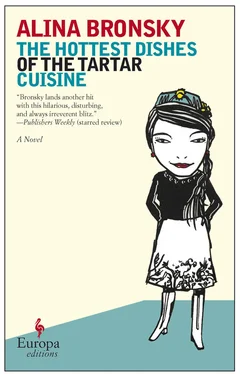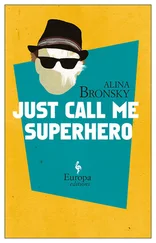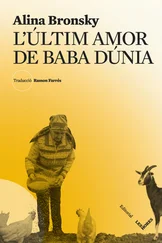After I’d been thrown out of the hospital, I also lost five important clients one after the next. Eventually I had just two cleaning jobs left, one of which was at John’s place. Then only John was left. But I no longer did my work thoroughly. When I went to John’s I had no desire to do anything. It would have been more honest just to quit.
I tried, actually, but he wouldn’t allow it. So I showed up fifteen minutes later than arranged (me, who was always so punctual!), and instead of wearing my boots and changing into rubber slippers, I would wear normal street shoes and walk straight across his Persian rugs into the kitchen and sit down at the table. I didn’t even bother to pick up the cleaning rags. He would just have taken them out of my hand.
As I sat there and read the Meals on Wheels menu that was stuck on John’s refrigerator, he made tea with milk, following all the rules of tea-making that at one time I had paid such attention to. A heated teapot, loose tea leaves from an expensive-looking canister, boiling water, and warm milk that John poured into each cup before the tea. He served it with English cookies topped with sugar crystals. I dipped them in my tea. I drank two or three large cups while John told me about the goings-on in the world. He had begun once again to read the papers and watch the news on TV. I acted as if I were listening. I asked him to keep an eye out for Aminat’s face or name, preferably in reference to someone who was alive. He promised me he would. I gave him some photos of Aminat. He put them on his refrigerator with magnets.
Once I had finished my tea, I got up from John’s kitchen stool. He handed me the envelope with the usual fee for cleaning, but I pushed his hand aside. When I got home, however, I found the envelope in my purse.
It was, by the way, always quite clean at John’s still. His daughter was happy with the way it looked. I asked him who was cleaning the place and he smiled a proud gentleman’s smile.
“I am,” he said.
The prettiest patient in the intensive care unit
The next few years went by quickly even though nothing really happened.
I kept looking for Aminat. What else did I have to do? But my searching had become half hearted. Now if I thought I saw her in line ahead of me at the bank, I didn’t go running up and grab some stranger’s sleeve anymore. I carried her photos around in my handbag still, but I no longer showed them to people.
John went to his brother’s in England and stayed there. His house stood closed up and empty among the other houses like a dead tooth in a smile. I had a key. John had asked me to go by regularly, make sure everything was in working order, and dust, and for doing that he left me a nice sum of money. I did something I had never done before: I broke my promise and shirked my duties. It was just too much of a hassle to make my way to his house.
I didn’t talk to anyone at all except Sulfia. Things happened that I wasn’t sure had really happened. Perhaps I just thought they happened because it would have been good if they had. For instance, I wasn’t sure whether Aminat had really called me during the first year after her disappearance and spoken three sentences over the phone: “I’m doing well. Leave me alone. You’ve done enough by killing my mother.” Or whether she had wished me a happy birthday in the third year after her disappearance. Sulfia said I shouldn’t make anything out of it. She assured me that Aminat still loved me, but in her own way, from afar.
Yes, that was Sulfia. She saw only the best in everyone. I took to doing something that had once been completely foreign to me — staying in bed. I locked my bedroom door and one night I even put a dresser in front of the door to guarantee I wouldn’t be disturbed.
Dieter knocked on my door. I told him — from my bed — to go to hell. Sulfia convinced me that I should get out of bed and go have something to drink. I begged her to leave me in peace. I had earned it. She sat down on the edge of my bed and cried. It got on my nerves and I turned my back to her and faced the wall.
I prayed to God to bring Aminat back to my side because my final hour was approaching. I whispered it at the white wall as if God’s ear was right there. Then I suddenly heard John’s voice — outside the door. He called my name — loud, deep, hostile. He was asking why I hadn’t gone over to his house as agreed. He was upset I had neglected my responsibilities. After all, I had been paid.
“Go away!” I called.
It was supposed to sound loud, but I didn’t have any strength left. What came out of my mouth was just a weak hiss.
I had completely forgotten what a deep voice John had, a real teacher’s voice. His voice filled my room even through the door. Dieter’s croaking, on the other hand, barely registered.
I didn’t move when the door broke down with a terrible crash and John fell into the room over the dresser — my attempt to keep the outside world at bay. Fleeting thoughts about what a bad impression this was going to leave John with ran through my head. Fortunately my silk nightgown was still fresh and its trim still nicely pressed — because I’d barely moved in bed. But I certainly hadn’t figured on a visit from a man. I hadn’t put on any makeup before I laid myself down (I hadn’t considered Dieter a man for a long time). Which is why I stayed in my original position, with my face turned to the wall, so John couldn’t see my naked face. All he could see was my long hair, freshly braided before I had gotten into bed.
He shook me hard by the shoulder and asked if I was sick. Given how long it had been since we had seen each other, he was acting very familiar. Although I tried to stop him, he managed to roll me onto my back. He was shocked at what he saw.
“She’s deathly pale!” he called to Dieter. John had never seen me without my skillfully applied rouge. Dieter volunteered that I’d been in my room for two weeks without eating or drinking anything. Unless, of course, I had slipped out to the kitchen during his occasional absences. (Such impudence!)
John shook me as if he were fluffing a pillow. I groaned. I became painfully aware of my situation. I’d be unable to remedy the impression I had just made on him for the rest of my life (though, I forgot for a second, my life was about to end). Why did he have to show up now, of all times? Couldn’t he have remembered me as the beaming Rosalinda I once was?
John disappeared into the hall, for which I was thankful. I didn’t know yet that he’d called an ambulance that would transport me — lights flashing and siren blaring — to the intensive care unit at the municipal hospital.
I was the prettiest patient in the intensive care unit — and the loudest. It bored me to lie in bed with tubes sticking in me. The treatment seemed exaggerated. I had to go to the toilet and rang for one of the nurses in purple smocks. She brought me a bedpan. I screamed at her — I wasn’t potty training! She looked at me totally shocked. Nobody ever screamed in the intensive care unit. At most maybe the occasional death rattle. I knew, I had worked at a hospital. The nurses spoke very slowly to me, in short sentences, everything repeated — as if I were brain damaged.
Two days later I was transferred to the normal ward. I walked there myself while a poorly shaved nurse’s assistant pushed my things along behind me in a wheelchair. I lay down in bed. Here, fortunately, there were TVs. I wanted to see the news. Maybe Aminat would turn up. But I was also completely out of touch with what was going on. I also wanted to delay the talk with the doctor and call Dieter to have him pick me up.
A doctor came in. She was Asian, with flat black hair. She was very young, maybe even younger than Aminat was by now. Her white smock fit perfectly. She wore her stethoscope around her neck, as elegantly as a feather boa. On her chest pocket were a few syllables that sounded like bird calls. She was Chinese.
Читать дальше












